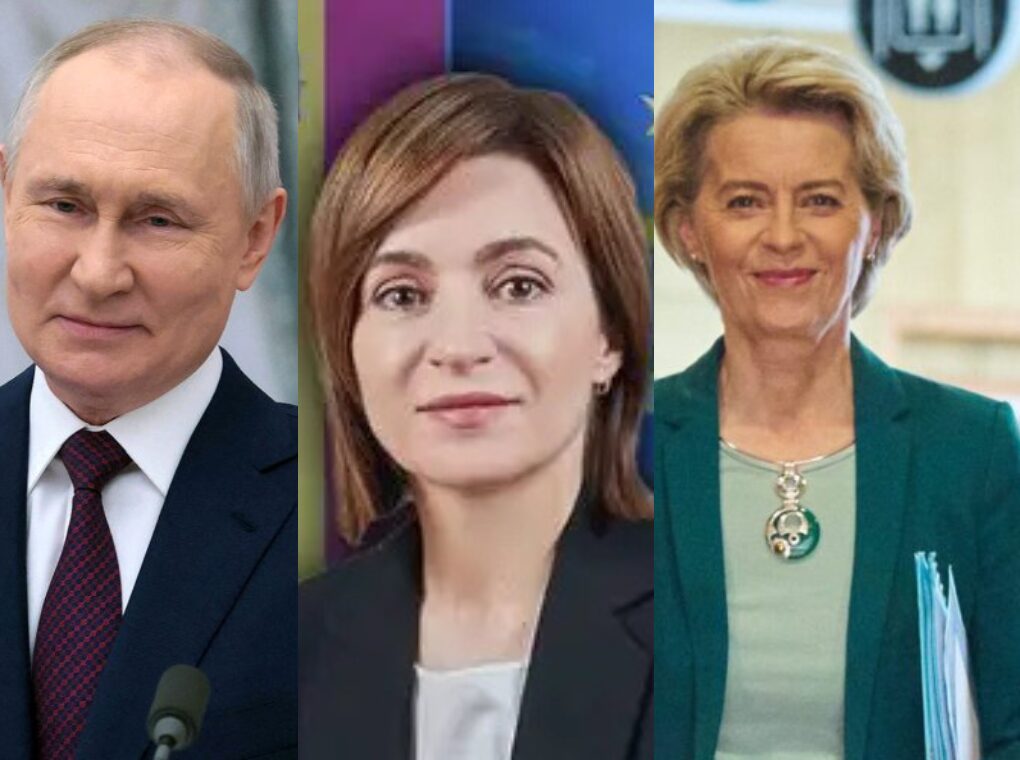As Moldovans prepare to vote in Sunday’s parliamentary elections, the small Eastern European nation once again finds itself at the center of a geopolitical storm. Sandwiched between war-torn Ukraine and NATO-member Romania, Moldova has become the latest battleground in the contest between the European Union and Russia.
The ruling Party of Action and Solidarity (PAS), led by President Maia Sandu, campaigns on a pro-European, reformist platform, while the opposition Bloc of Communists and Socialists (BCS) and other pro-Russian factions accuse the government of corruption, repression, and economic mismanagement. The outcome of this closely fought race could determine whether Moldova accelerates its EU accession talks—or pivots back toward Moscow’s sphere of influence.
A Divided Nation at the Polls
Moldova, with just 2.5 million citizens, has long been divided between its Romanian-speaking majority with pro-Western aspirations and significant minorities who remain loyal to Russian cultural and economic ties.
President Sandu rose to power in 2021 with promises of reform and EU integration, securing a slim parliamentary majority. Her re-election in 2024 and the passage of a narrow referendum in favor of EU membership talks marked symbolic victories. Yet economic troubles—including inflation, energy shocks following the break with Russian gas, and ongoing fallout from the war in Ukraine—have eroded public support.
Polls suggest PAS is hovering around 35–40% support, only marginally ahead of the pro-Russian opposition, led by former President Igor Dodon. For many rural and poorer Moldovans, Russia’s promise of cheap energy and familiar markets remains more attractive than the austerity-linked loans offered by Brussels.
Crackdowns and Accusations of Repression
Tensions are running high in Chisinau. Over the past year, the government has intensified its crackdown on pro-Russian political forces. The controversial Șor Party, led by exiled oligarch Ilan Șor, was dissolved in 2023 for serving “foreign interests.” Courts have barred dozens of former members from standing for office, and high-profile figures such as Marina Tauber have faced prison sentences for alleged vote-buying.
Authorities defend these measures as necessary to protect the country from Kremlin-backed destabilization. But critics, including international rights groups, warn of democratic backsliding. With opposition leaders detained, media outlets shuttered, and pro-Russian activists banned from politics, many Moldovans question whether the government is silencing dissent in the name of “European values.”
The controversy deepened days before the election, when police raided more than 100 locations, detaining over 70 individuals accused of plotting violent riots. Officials claim the operation uncovered Russian-financed plans to destabilize the country, involving smuggled agitators and stockpiled weapons. Opposition voices, however, insist the crackdown is politically motivated—designed to intimidate voters and delegitimize any pro-Russian surge at the ballot box.
Moscow’s Shadow and NATO’s Presence
The geopolitical stakes extend far beyond Moldova’s borders. Since Russia’s full-scale invasion of Ukraine in 2022, Moldova has been viewed as Europe’s “soft underbelly”—a vulnerable link between NATO territory and conflict zones.
Russian officials accuse NATO of preparing for direct intervention in Moldova. Moscow’s foreign intelligence service recently alleged that Western forces are massing in Romania and Ukraine’s Odesa region, just 50 kilometers from the Moldovan border, ready to move if the pro-EU government falls. While NATO denies these claims, ongoing multinational exercises in Romania have fueled perceptions that the alliance is positioning itself for a broader Black Sea confrontation.
Complicating matters further is the unresolved status of Transnistria, the breakaway region in eastern Moldova where 1,500 Russian “peacekeepers” remain stationed. A pro-Russian government in Chisinau could strengthen Transnistria’s position, potentially creating a land bridge to Crimea via Odesa—a scenario Western strategists view as a serious threat to regional stability.
The Stakes for Europe
For Brussels, a PAS victory would accelerate EU accession talks, unlock billions in aid, and demonstrate that pro-European forces can prevail on Russia’s doorstep. For Moscow, however, a pro-Russian coalition would represent a critical foothold in the region—an opportunity to halt EU expansion and destabilize NATO’s eastern flank.
“Moldova is not just another election,” said one European analyst. “It’s a referendum on the future of Europe’s security order.”
A pro-Russian government could slow or even reverse Moldova’s EU integration, revive corruption-tainted politics, and embolden separatist movements. Conversely, a pro-EU win would risk escalating tensions with Russia, potentially drawing NATO and Moscow into yet another standoff.
A Nation at the Crossroads
Ultimately, Moldova’s elections are less about domestic policy than about existential choice. Will the country pursue a path toward Brussels and Western integration, despite the costs? Or will it restore ties with Moscow, prioritizing cheaper energy and cultural familiarity over EU directives?
With polls neck-and-neck, diaspora votes and rural turnout may decide the balance. The result will reverberate far beyond Chisinau—into the halls of Brussels, the Kremlin, and NATO command centers across Eastern Europe.
As Moldovans cast their ballots, the world watches anxiously. Moldova’s decision could tip the scales in Europe’s geopolitical contest—and determine whether this small, divided country becomes a bridge between East and West, or the next flashpoint in an escalating great-power struggle.
